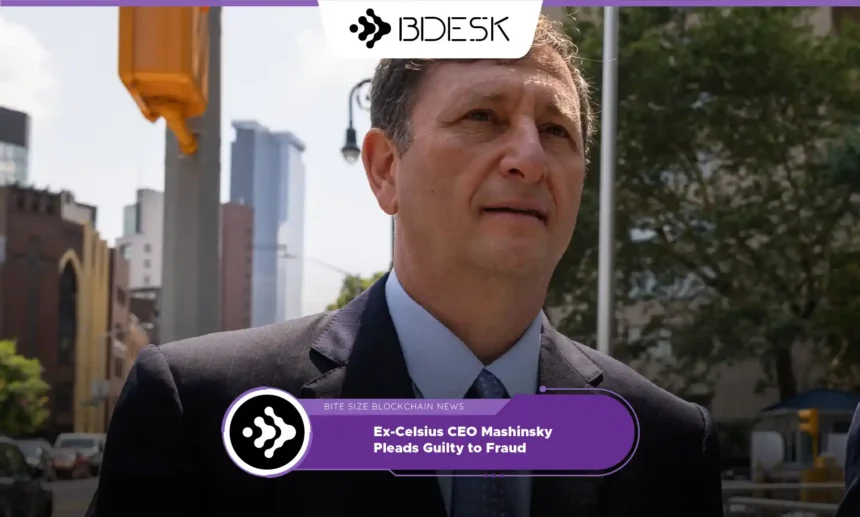Alex Mashinsky admitted to fraudulent schemes tied to Celsius Network, signaling accountability amid crypto industry scandals.
Mashinsky Admits Guilt in Celsius Fraud Case
Alex Mashinsky, former CEO of Celsius Network, has pleaded guilty to two counts of fraud related to manipulating the CEL token’s price. Mashinsky, 59, admitted to inflating the token’s value to attract customers and personally profited by $42 million. During the Manhattan hearing, he stated:
“I knew what I did was wrong and I want to do whatever I can to make it right.”
The charges stem from his efforts to mislead Celsius investors, which contributed to the company’s downfall in 2022 during the broader “crypto winter.”
Collapse of Celsius and Crypto Winter
The downfall of Celsius marked a critical point in the cryptocurrency sector. The company collapsed under mounting debt, joining other high-profile failures like Sam Bankman-Fried’s FTX. By the time Celsius filed for bankruptcy, it owed over $1 billion to investors.
Mashinsky allegedly created false confidence among investors through misleading claims, including the firm’s financial stability. Prosecutors argue his statements were intended to delay the inevitable crash.
Key Accusations and Court Details
Mashinsky pleaded guilty to two charges: commodities fraud and token price manipulation. A separate claim stated that Celsius used customer deposits to artificially boost CEL token prices. A message from former Celsius executive Roni Cohen-Pavon highlighted the internal concerns:
“The issue is that people are selling and no one is buying except for us.”
Cohen-Pavon, who pleaded guilty last year, is now cooperating with prosecutors. Mashinsky faces sentencing in April 2024, with prosecutors recommending a cap of 30 years in prison.
Misleading Investors Through Public Statements
Prosecutors allege Mashinsky made optimistic claims about Celsius during a series of online videos called Ask Mashinsky Anything. His company promised high-interest rates on crypto deposits, but it struggled to handle withdrawals during market downturns.
Mashinsky acknowledged making false claims to calm investor concerns. He admitted to stating that Celsius had regulatory approval, despite knowing otherwise.
Broader Implications for Crypto Regulation
Mashinsky’s guilty plea comes after the crypto industry faced heavy scrutiny following multiple high-profile collapses. Prosecutors accuse Celsius of fueling market instability through risky practices and misleading claims.
Celsius founder Alex Mashinsky finally pleaded guilty to two counts of fraud and now faces a maximum 30-year prison sentence. However, it was obvious to me that he was a fraudster based on a single conversation. Why did it take authorities so long to figure out the obvious?
The case highlights the risks in the underregulated cryptocurrency space, drawing parallels to Bankman-Fried’s conviction for fraudulent practices at FTX.
Sentencing and Final Remarks
Mashinsky’s agreement includes no appeal for sentences of 30 years or less. This approach signals his willingness to cooperate, potentially mitigating further penalties. His acknowledgment of responsibility marks a significant moment for accountability in the crypto sector.
The case is being heard in the Southern District of New York under the name US v Mashinsky, 23-cr-00347.
Disclaimer:
The information provided on 13Desk is for informational purposes only and should not be considered financial advice. We strongly recommend conducting your own research and consulting with a qualified financial advisor before making any investment decisions. Investing in cryptocurrencies carries risks, and you should only invest what you can afford to lose. 13Desk is not responsible for any financial losses incurred from your investment activities.











